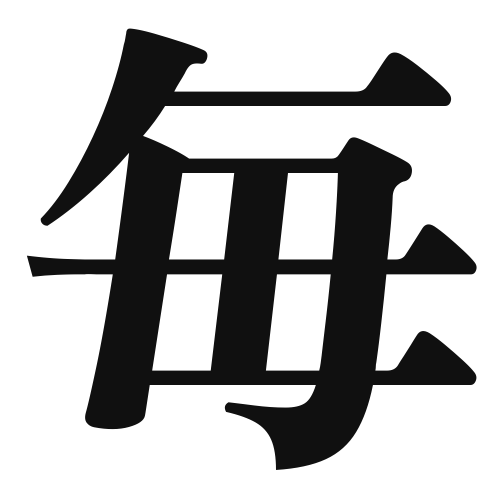1. Overview of Meaning
The kanji “毎” (pronounced “mai”) means “every” or “each.” It is used to indicate frequency or regularity in various contexts, such as time, events, or actions.
2. Formation and Radical
Formation of the Kanji: The kanji “毎” is a phono-semantic compound, which means it combines both phonetic and semantic elements. It originally depicted a concept of repetition or regularity.
Radical: The radical for “毎” is “毎” itself, which is also the complete kanji. It does not have a separate radical component.
3. Examples of Usage
Common Words and Phrases: Some frequently used words that include “毎” are:
- 毎日 (mainichi) – every day
- 毎週 (maishuu) – every week
- 毎月 (maitsuki) – every month
Example Sentences in Daily Conversation:
- 私は毎日ジョギングをします。 (Watashi wa mainichi jogingu o shimasu.) – I go jogging every day.
- 彼は毎週サッカーをします。 (Kare wa maishuu sakkaa o shimasu.) – He plays soccer every week.
4. Synonyms and Antonyms
Similar Kanji: A similar kanji is “各” (kaku), which means “each” or “every,” but it is often used in a more formal context, such as “各国” (kakkoku) meaning “each country.”
Antonyms: An antonym for “毎” is “一度” (ichido), which means “once,” indicating a single occurrence rather than a repeated one.
5. Cultural and Historical Background
Relation to Japanese Culture: The concept of regularity and routine is significant in Japanese culture, where practices such as daily rituals and seasonal festivals are common.
Proverbs and Idioms: An example of a proverb that includes “毎” is “毎日が新しい日” (Mainichi ga atarashii hi), which translates to “Every day is a new day,” emphasizing the importance of fresh starts and daily opportunities.
